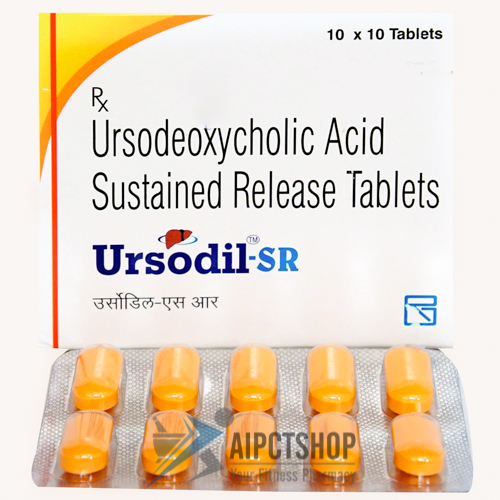What is this drug used for?
– It is used to treat or prevent gallstones.
– It is used to treat a type of liver disease caused by bile duct problems in the liver (biliary cirrhosis).
Frequently reported side effects of this drug
– Dizziness
– Headache
– Back pain
– Nausea
– Vomiting
– Constipation
– Muscle pain
– Joint pain
– Common cold symptoms
– Hair loss
– Diarrhea
– Abdominal pain
– Heartburn
Other side effects of this drug: Talk with your doctor right away if you have any of these signs of:
– Urinary tract infection like blood in the urine, burning or painful urination, passing a lot of urine, fever, lower abdominal pain, or pelvic pain.
– Signs of a significant reaction like wheezing; chest tightness; fever; itching; bad cough; blue skin color; seizures; or swelling of face, lips, tongue, or throat.
Note:?This is not a comprehensive list of all side effects. Talk to your doctor if you have questions.
Pronunciation
(ur soe DYE ol)
Medication Safety Issues
Sound-alike/look-alike issues:
Ursodiol may be confused with ulipristal
Storage and Stability
Actigall: Store at 25?C (77?F); excursions permitted to 15?C to 30?C (59?F to 86?F).
Urso: Store at 20?C to 25?C (68?F to 77?F).
Urso Forte: Store at 20?C to 25?C (68?F to 77?F). When broken in half, scored Urso Forte 500 mg tablets maintain quality for up to 28 days when kept in current packaging and stored at 20?C to 25?C (68?F to 77?F). Split tablets should be stored separately from whole tablets due to bitter taste.
Adverse Reactions
Central nervous system: Dizziness, headache
Dermatologic: Alopecia, rash
Endocrine & metabolic: Hyperglycemia
Gastrointestinal: Constipation, diarrhea, dyspepsia, nausea, peptic ulcer, vomiting
Genitourinary: Urinary tract infection
Hematologic & oncologic: Leukopenia, thrombocytopenia
Hepatic: Cholecystitis
Hypersensitivity: Hypersensitivity reaction
Infection: Viral infection
Neuromuscular & skeletal: Arthritis, back pain, musculoskeletal pain, myalgia
Renal: Increased serum creatinine
Respiratory: Bronchitis, cough, flu-like symptoms, pharyngitis, upper respiratory tract infection
Rare but important or life-threatening: Abdominal distress, abdominal pain, abnormal hepatic function tests, angioedema, anorexia, biliary colic, esophagitis, facial edema, fever, hepatobiliary disease, increased gamma-glutamyl transferase, increased liver enzymes, increased serum alkaline phosphatase, increased serum ALT, increased serum AST, increased serum bilirubin, jaundice, laryngeal edema, malaise, metallic taste, myalgia, peripheral edema, pruritus, transaminases increased, urticaria, weakness









Reviews
There are no reviews yet.